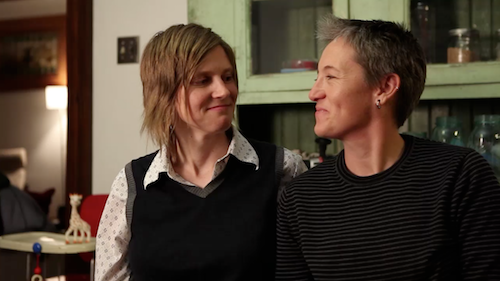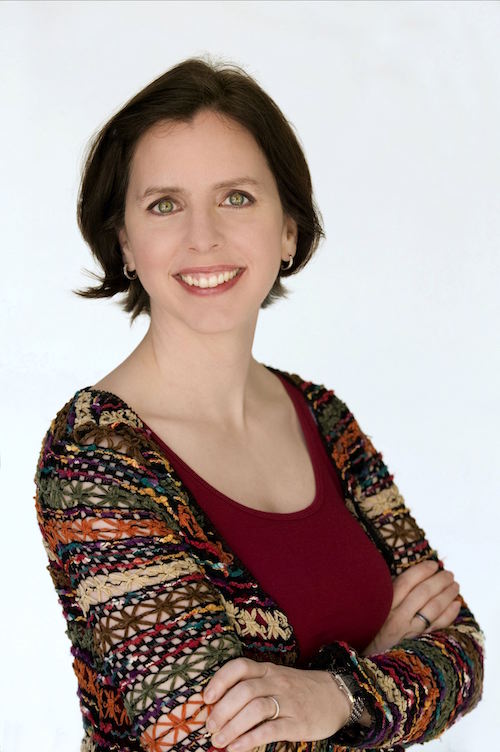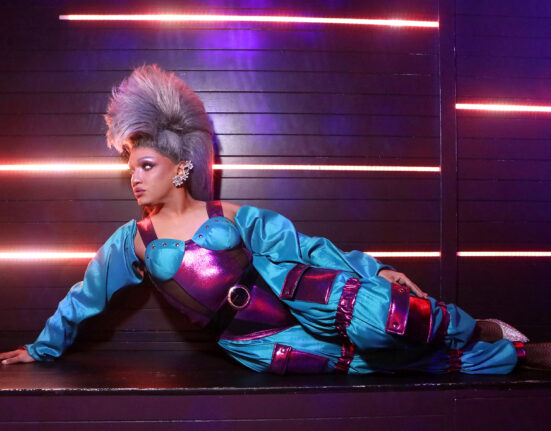Enlightening and Inspirational, certainly describes the new award winning documentary, “Kings, Queens, & In-Betweens”, directed, loved and cherished by Gabrielle Burton of Five Sisters Production. This compelling film celebrates its focus on the drag Kings and Queens and Transgender community members in Columbus Ohio, but reaches out to all humanity.
The film can be purchased on iTunes, Amazon and Google play, as well as being seen throughout the country beginning in Columbus Ohio in New York City.
See the trailer:
Gabrielle Burton, the director is a winner of the Ohio arts Council’s Artist of Excellence award, and was chosen to give a Tedx talk on the movie. Beyond that I found her completely charming and knowledgeable, and I enjoyed speaking to her immensely.
Without sounding challenging, what prompted you and qualified you to direct this diverse and audacious documentary?
My sisters and I, there are five of us, were raised by my parents who are feminists back in the 70s. As a family they decided to apply and think about these things in raising children. What was the gender role in each of them, and what was the approach to it all. Of course having five girls put that on the forefront as well. I think they were very aware of the idea of channeling us into certain social roles. When we all started in filmmaking, it came out slowly what were all the things that went into a film, from casting to costuming, to what’s the story you’re telling. We had done a short film called “The Happiest Day of his Life”, 6 years ago, that was on Logo, and that was a traditional heterosexual wedding set in a gender reversed world. By doing that everybody said, what a hilarious comedy, and why is that? If you have men wearing purple suits with top hats and a veil, why is that so it’s so funny? In this case, I had a son and a daughter, a couple of years before, and I went to a drag show, and I thought ” here on stage are all these people, shaking up these roles that were placed on my own children, societally”. And I was thinking about it, how do you raise them to sort of be in society? With that into the window of discussing the stuff, I thought that the perfect entrée, we have these people who are entertainingly putting on a show. Yet underneath the surface, it’s bringing up all of these questions. Additionally I lived in Columbus Ohio, and had no idea that this existed there. I thought if this was here in Columbus, that this was a universal issue, that people were thinking about this diversity of identity.

A lot of times in the gay community, especially with Queens, you have a lot of different diverse personalities to deal with, different diva issues, and issues in general, was it difficult directing this type of film because of that? I mean you do have issues in the straight world too, but it doesn’t seem as pronounced or as dramatic.
Obviously I think with any documentary, or any film, you’re always having to deal with the personalities. Think about it in a feature film, the actors can be difficult, needing reassurance, or everybody is complex. I think probably coming from feature filmmaking helps because you need to as a director or producer, assure people that you are on their side, and at the end of the day you were wanting to tell the story as the strongest story. In this case a lot of these things can be very emotional and revealing. In that sense I think it took gaining their trust, and then I think people understood what I was interested in doing. The people are amazing. I was also trying to get the main people to be anchors to some element of the diversity in the scene. One of the hardest parts was editing hundreds of hours of footage. The film was initially 11 hours long.
How long has it taken you to make this film?
It took 6 years of my life. What’s so interesting too, is that literally six years ago when I started making this film that people were not talking about these things. One of the queens said to me at the premiere, “how did you know to ask us about bathroom rights”? Nobody was even considering that kind of thing. When I started it was before “Orange is the New Black” was on. Before people were even talking about transgender and their rights, my sisters and I were thinking about things, and I felt that this was the next frontier. What is equal rights about? It’s about all of these things, but ultimately a major element comes down to gender.
Your movie has come out at a perfect time now.
Isn’t that wild. The election was sobering for many people. But I thought OK, you just pull up your bootstraps and see how much more work we have to do. Keep on keeping on. You’ve got to use this movie to try to educate people because clearly, there are a lot of people who have no idea. I don’t know if you noticed but there is no authoritative voice in the film. In our days the pressure with a documentary is to have a narrative art. I wanted this film to be about a voice of a lot of people. Hopefully the people at the end of the film will suddenly go, “OH”, and see the full portrait of humanity.
So you did much more than direct?
I ended up shooting a lot of it. I learned to edit during making the film because it took so long. My sisters were there all along the way. It was my baby, my special project, so you know as a writer you get up in the morning and you have to fill up that blank page. Nobody was going to make this film for me. I just would go out and borrow cameras, walk out on the street, interviewing people, because I knew I just had to get the culture of the town into it.
Where can someone find this film?
The week of March 17th to the 23rd it will be brought back for late night shows. It’s also in theaters in Columbus Ohio, and it’s traveling around the country in different places. It will be at the USA film festival in Dallas, in April, and then in June it’s a pre-pride event. Then it’s available nationally on iTunes, Amazon, and Google play.



Leave feedback about this
You must be logged in to post a comment.